Noseda, orchestra and fine cast make a heroic case for Met’s “Chenier”
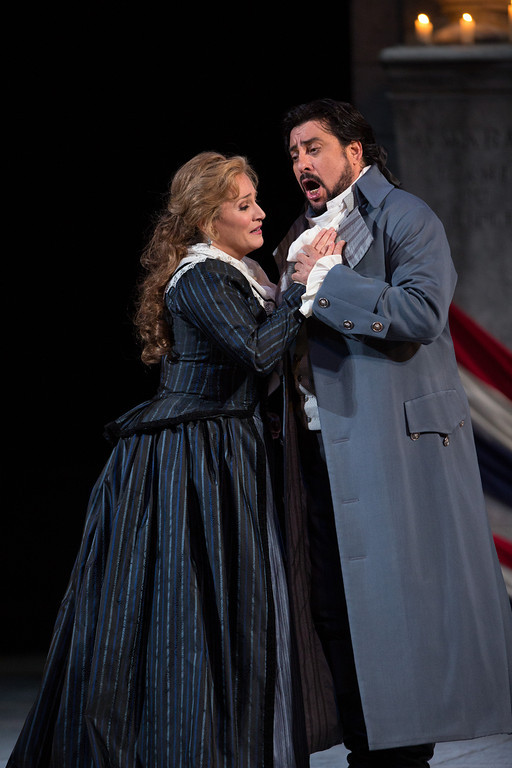
Patricia Racette and Marcelo Alvarez in Giordano’s “Andrea Cheniér” at the Metropolitan Opera. Photo: Marty Sohl
The Metropolitan Opera’s revival of Andrea Chénier offers a night of pleasure in the sheer musicality of the performance, and in the way the music-making gets to the heart of the score.
Chénier is Umberto Giordano’s proto-verismo opera built around the life and death of the poet of the title, who in real life was sympathetic to the republican ideals of the French Revolution but was executed nonetheless, during the waning days of the Terror, for his political satires. In the piece, Chénier is first shown as anti-clerical and anti-aristocracy, then the victim of the kind of convoluted love triangle that only works in opera.
The tragedy is that Chénier and his beloved, Maddalena, go to the guillotine together, their path engineered by their friend, Carlo Gérard, who wants Maddalena for himself. Giordano’s composing is more sympathetic to the characters, and ultimately more affecting, than in the likes of Puccini’s Tosca.
Chénier, as the Met’s program note points out, is made for star singers. All of the principal characters have big arias that are important to both their inner lives and the plot, and Chénier has been sung by a who’s-who of tenors over the past half-century: Mario del Monaco, Placido Domingo, Franco Corelli, and Luciano Pavarotti.
Marcelo Álvarez takes the lead in this production, and his high tenor doesn’t quite have the heft of those big names. But heroism in singing is more frequently expressed with range than weight, and Álvarez sang clearly and smoothly. He expresses himself with phrasing, articulation and dynamics—less obvious, but more musical.
The quality of his voice is almost Mozartian, as is the democratic design of the score, and that is the strength of this production. The cast is deep, and the singers and conductor Gianandrea Noseda shine a light on all the principals and the riches of the music.
Maddalena is sung by soprano Patricia Racette, and Gérard is baritone Željko Lučić. Both started a bit slowly, their singing noticeably stiff and constrained in the first act—though this was no different than everyone else, save for Álvarez, who was open and vibrant from that start of “Un dì all’azzuro spazio.” They opened up after the first intermission and sang with increasing musical and emotional expression as the opera unfolded.
Not listed in the cast, but equal in importance and star power on opening night was the Met Orchestra. Noseda and musicians fairly leapt out of the gate with tremendous verve, and the conductor kept the music fleet and lithe throughout the evening, quick but without haste. He managed the shifting tempos, dynamics and moods beautifully, and was a sympathetic accompanist. His pace was perhaps a bit quicker than in rehearsals and most of the singing was slightly but noticeably behind for the first twenty minutes or so, but that was, if anything, an error of commission.
Giordano’s music is more than just rhythm and harmony under the vocal lines, it is a character as well, supporting and undercutting the principals’ sense of events, commenting on the action and the singing like a nattering yet compelling Greek chorus. Especially important is the composer’s orchestration, which mixes together strings, winds and brass in a palette of subtle colors that are vital to the emotional expression, and Noseda and the musicians revealed this with astonishing clarity and refinement.
The pace slowed a bit after Act I, and the singers became first among equals. Gérard is vital to the plot, the former servant who becomes a leading citizen of the Revolution, and Lučić seemed to literally grow in stature along with the role, the deep coloration of his voice expanding his form physically, even as he limped around stage, suffering from a wound from his brief sword fight with Chénier. His third act aria, “Nemico della patria,” was imposing, and he managed the dramatically difficult feat of plausibly changing his thinking twice in the space of the same act.
His impetus was Racette, who was deeply involving in her own aria, “La mamma morta,” where she elicits sympathy for Chénier’s life through the story of her own. Her back and forth musical dialogue with Gérard was time-stopping, and the rest of the opera revolved around this scene. But the Revolution eats its young, and Maddalena is left with no choice but to join Chénier in death. Their closing duet, “La nostra morte,” was lovely.
With time and place determined, there’s not much for a stage production to do but sit there, create the context, and look good. Nicolas Joël’s design has one concession to political thinking, a gigantic mirror set at a dangerously precarious angle at the home of the Countess de Coigny. The rest is solid, unremarkable period settings and costumes.
The singing quickly and complete wipes away the traditional dullness of the staging. In the smaller roles, baritone Dwayne Croft sang with affecting lyricism as Chénier’s friend Roucher, and mezzo-soprano’s Jennifer Johnson Cano and Olesya Petrova (in her Met debut) are strong as Bersi and Madelon. Cano is particularly vivacious and sexy, and Petrova just about steals Act III with her affecting lament as the old woman offering up first her son’s, then her grandson’s, lives in service of the Revolution. More’s the pity that everyone dies in the end, but at least they go down singing.
Andrea Chenier continues through April 12. metoperafamily.org
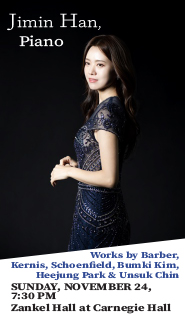
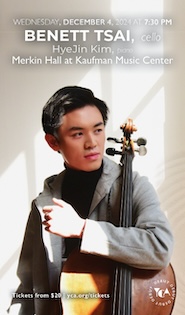
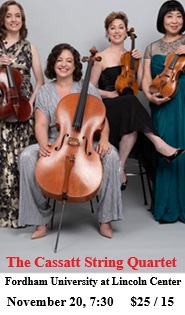
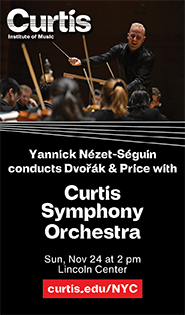
Posted Mar 28, 2014 at 8:44 am by Izolda
Perfect singing of Mr. Alvarez was the true treasurer of MET’s ”Chenier”! His amazing performance was with delicate, but passionate declamatory style of verismo phrasing, shining beauty of middle register, thrilling hight notes, good mild lines of legato, perfectly clean, sensitive mezzo voci and charming piano. I heard many modern tenors, who performs the role of Chenier (de Leon, Sandoval, Cura, etc), but Alvarez is the best interpretor of this rich and very difficult role. He has a true feeling of verismo style, neither his timbre is not tenore di forza, but his lirico-spinto voice covers the Chenier’s tessitura due to the perfect technical method and marvelous beauty of voice. He was the leader of the cast and true hero of the evening.
Posted Mar 31, 2014 at 4:38 am by meg
Thank you for this lovely comment, Izolda. Nothing to add! It has been shared with Marcelo Alvarez Fans on FB 🙂
Posted Apr 01, 2014 at 8:17 am by Ralph Acosta
Everyone must have heard a different performance than I. I must admit that I only heard it on Sirius, so the sound was barely acceptable. Marcello is a fine artist but his instrument was taxed to the extreme….A for effort but C in total, not a congenial role for him at all. Patricia distressingly wobbled in and out of pitch most of the night, and I am a fan; and Zeljko just isn’t the Merrill-like baritone needed for Gerard. Gianandrea Noseda, on the other hand, was magnificent, pulling all sorts of flavors out of the score from the great Met Orchestra. If the Met wants to fill the seats again, try getting rid of the “pretty” singers and get some old-fashioned singers with substance to their voices, regardless of their looks. This is Opera, people, not Hollywood or Broadway…….observe what trying to look good did to Callas and Deborah Voigt, to my everlasting sorrow.